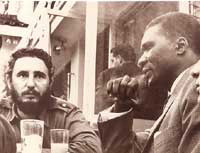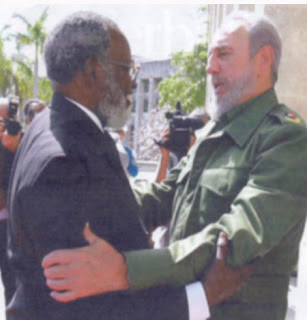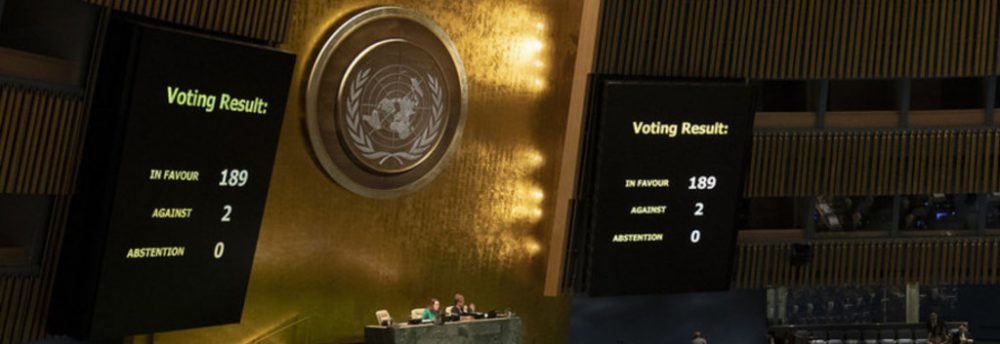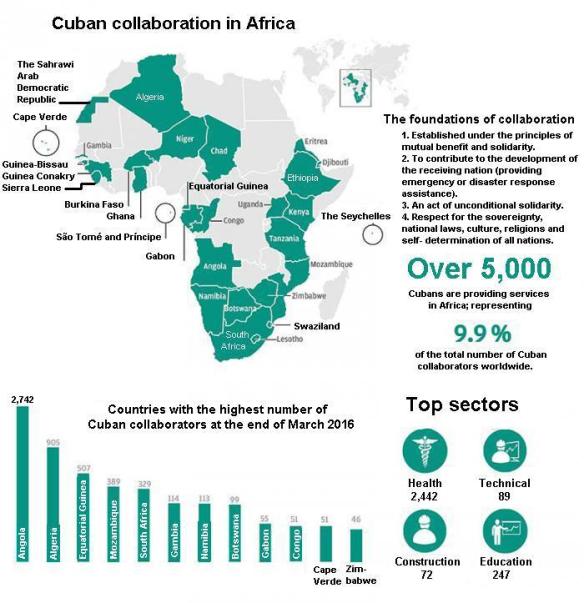Source: TeleSUR
May 21 2016
By: Ilka Oliva Corado
Dilma is unbreakable, they will not be able to break her. But they are not going for her, they are going for the achievements of progressive government, they are going for the dreams of outcasts.

Now is the time to assert their vote. No one can defend the rights of outcasts better than themselves.
 “We should have killed her,” her torturers must have repeated hundreds of times when they saw her become the first woman president of Brazil. Or they may have wanted for cancer to remove her from the political scene like with Evita (only temporarily, because she is immortal). There is a before and after Dilma in Brazil and Latin America. A woman president overcoming patriarchy and gender inequality. A woman who has created gender inclusion policies from government – social policies that have benefited millions of pariahs that the oligarchy can only see as pawns that they have exploited for centuries and want to continue to exploit.
“We should have killed her,” her torturers must have repeated hundreds of times when they saw her become the first woman president of Brazil. Or they may have wanted for cancer to remove her from the political scene like with Evita (only temporarily, because she is immortal). There is a before and after Dilma in Brazil and Latin America. A woman president overcoming patriarchy and gender inequality. A woman who has created gender inclusion policies from government – social policies that have benefited millions of pariahs that the oligarchy can only see as pawns that they have exploited for centuries and want to continue to exploit.
The life of women has always been uphill, and we continue  to fight against the worst of enemies – patriarchy, where the misogyny and machismo that is so damaging to our society and gender is derived. It is much more difficult for women who dare to challenge the limits and rules imposed and actively participate in politics. Being female and having the dignity and the ability to lead a nation can be costly in Latin America, as Cristina and Dilma know.
to fight against the worst of enemies – patriarchy, where the misogyny and machismo that is so damaging to our society and gender is derived. It is much more difficult for women who dare to challenge the limits and rules imposed and actively participate in politics. Being female and having the dignity and the ability to lead a nation can be costly in Latin America, as Cristina and Dilma know.
Both have been sullied. Much of the post-coup analysis on Dilma, written by intellectuals and international political analysts condemn and blame her for being a woman.
Subjective analyses made from the viewpoint of patriarchy, with a high level of misogyny and stereotypes. With all kinds of insults, contempt and fallacies.
Betrayal, hatred, jealousy
For Dilma, this fraudulent coup has been dealt by betrayal, hatred, jealousy, from the feeling of inferiority and for that reason it has been so vicious.
An attack on progressivism and democracy that developed since Lula became president and increased the dose of hatred when Dilma took over: too many women and African descendants in government, something that classism and the oligarchy, and much less patriarchy could support.
 Too many benefits for the hardest hit by the system, the neglected and exploited. Too much for the outcasts, the favelas, too much visibility for women and too many rights for the LGBTI community. From any ideological perspective, there is no denying the progress made in Brazil with Dilma as president.
Too many benefits for the hardest hit by the system, the neglected and exploited. Too much for the outcasts, the favelas, too much visibility for women and too many rights for the LGBTI community. From any ideological perspective, there is no denying the progress made in Brazil with Dilma as president.
Her performace has been backed by 54 million Brazilians but beaten back by 50 votes from the servants of capitalism. One of the new modalities of the Condor Plan are coups that are backed by media who manipulate and play the role of political actors.
No evidence that implicates her
 There is not a single shred of evidence that implicates her, and they can look under rocks for it if they want. Her capital sin has been to govern for the sullied by creating policies of inclusion, development and social equality, to seek justice on Human Rights. She sought to give voice to the voiceless, and to allow the forgotten to dream; something that no oligarchy, neoliberalism and classism can forgive or permit.
There is not a single shred of evidence that implicates her, and they can look under rocks for it if they want. Her capital sin has been to govern for the sullied by creating policies of inclusion, development and social equality, to seek justice on Human Rights. She sought to give voice to the voiceless, and to allow the forgotten to dream; something that no oligarchy, neoliberalism and classism can forgive or permit.
Cutting off Dilma’s head strikes at the heart of outcasts, for that reason the traitors have attacked ferociously – because they lost at the polls.
Helping millions of marginalized people
They could defeat someone who has put a roof over people’s heads and put a plate of food on the tables for millions of marginalized people. Someone who has created jobs, invested in education, health and infrastructure, who has bet on the BRICS instead of on the United States and oligarchic capital of the region.
Someone who has not sold oil to abusive hands, who has a futuristic vision of regional integration and who wants comprehensive development for Brazilian children in their own country, so they are not forced to migrate through neoliberal countries to be exploited in the United States.
Someone who wants and fights for the rights to women so that they stop being seen as third rate human beings.
A political and human obligation to take to the streets
The 54 million Brazilians have a political and human obligation to take to the streets, demonstrating peacefully defending their rights. Dilma can not do it alone, and Dilma has defended them during her tenure, even with her life since her teens: never forget that she was tortured by those who now want her removed!
Now is the time to assert that vote and make their voices heard. No one can defend the rights of outcasts better than themselves. For Dilma, for Brazil, for the favelas. For the right to live in a country that deserves to flourish. For historical memory, dignity, identity, human and labor rights. For justice, for integrity and love. For those who came before, for those who are here and those who will come.
Dilma is unbreakable, they will not be able to break her. But they are not going for her, they are going for the achievements of progressive government, they are going for the dreams of outcasts. They are going for the unprecedented beauty of a blooming Brazil. No capital, no oppressor, no traitor has never been able to deal with the enormous strength of a wounded and honest people. Brazil has to show what it is made. The time is now and the fight is today.
Today and always, my love and support for my president Dilma and my homeland Brazil.
 Cuba joins today the celebration of the 53rd anniversary of Africa Day, a date when we celebrate together the creation of the Organization of African Unity (OAU), which later became the African Union, and the 130th anniversary of the abolition of slavery in Cuba.
Cuba joins today the celebration of the 53rd anniversary of Africa Day, a date when we celebrate together the creation of the Organization of African Unity (OAU), which later became the African Union, and the 130th anniversary of the abolition of slavery in Cuba. Cuba avails itself of this opportunity to convey its gratitude for the permanent support of the African Union in the struggle against the blockade and ratifies the will of the Cuban Government to continue strengthening the brotherhood and cooperation relations with the African peoples.
Cuba avails itself of this opportunity to convey its gratitude for the permanent support of the African Union in the struggle against the blockade and ratifies the will of the Cuban Government to continue strengthening the brotherhood and cooperation relations with the African peoples.















 She also stressed the strong African heritage in Cuba,
She also stressed the strong African heritage in Cuba, 



 “I don’t believe external interference is a primary or a secondary reason for what’s happening now in Brazil. It’s not. The grave situation we see now has developed without any such interference. This coup is not like usual coups is Latin America which normally involve weapons, tanks and street arrests and torture. The current coup is happening within the democratic framework with the use of existing institutions in support of indirect elections not stipulated in the constitution. This coup is carried out by hands tearing apart the Brazilian constitution, so we don’t know what kind of repercussions this will lead to considering that an impeachment without repercussions would only be possible in the case of a committed crime. If there is no crime then an impeachment is illegal.” Dilma Rousseff, President of Brazil
“I don’t believe external interference is a primary or a secondary reason for what’s happening now in Brazil. It’s not. The grave situation we see now has developed without any such interference. This coup is not like usual coups is Latin America which normally involve weapons, tanks and street arrests and torture. The current coup is happening within the democratic framework with the use of existing institutions in support of indirect elections not stipulated in the constitution. This coup is carried out by hands tearing apart the Brazilian constitution, so we don’t know what kind of repercussions this will lead to considering that an impeachment without repercussions would only be possible in the case of a committed crime. If there is no crime then an impeachment is illegal.” Dilma Rousseff, President of Brazil


 “We should have killed her,” her torturers must have repeated hundreds of times when they saw her become the first woman president of Brazil. Or they may have wanted for cancer to remove her from the political scene like with Evita (only temporarily, because she is immortal). There is a before and after Dilma in Brazil and Latin America. A woman president overcoming patriarchy and gender inequality. A woman who has created gender inclusion policies from government – social policies that have benefited millions of pariahs that the oligarchy can only see as pawns that they have exploited for centuries and want to continue to exploit.
“We should have killed her,” her torturers must have repeated hundreds of times when they saw her become the first woman president of Brazil. Or they may have wanted for cancer to remove her from the political scene like with Evita (only temporarily, because she is immortal). There is a before and after Dilma in Brazil and Latin America. A woman president overcoming patriarchy and gender inequality. A woman who has created gender inclusion policies from government – social policies that have benefited millions of pariahs that the oligarchy can only see as pawns that they have exploited for centuries and want to continue to exploit. to fight against the worst of enemies – patriarchy, where the misogyny and machismo that is so damaging to our society and gender is derived. It is much more difficult for women who dare to challenge the limits and rules imposed and actively participate in politics. Being female and having the dignity and the ability to lead a nation can be costly in Latin America, as Cristina and Dilma know.
to fight against the worst of enemies – patriarchy, where the misogyny and machismo that is so damaging to our society and gender is derived. It is much more difficult for women who dare to challenge the limits and rules imposed and actively participate in politics. Being female and having the dignity and the ability to lead a nation can be costly in Latin America, as Cristina and Dilma know. Too many benefits for the hardest hit by the system, the neglected and exploited. Too much for the outcasts, the favelas, too much visibility for women and too many rights for the LGBTI community. From any ideological perspective, there is no denying the progress made in Brazil with Dilma as president.
Too many benefits for the hardest hit by the system, the neglected and exploited. Too much for the outcasts, the favelas, too much visibility for women and too many rights for the LGBTI community. From any ideological perspective, there is no denying the progress made in Brazil with Dilma as president. There is not a single shred of evidence that implicates her, and they can look under rocks for it if they want. Her capital sin has been to govern for the sullied by creating policies of inclusion, development and social equality, to seek justice on Human Rights. She sought to give voice to the voiceless, and to allow the forgotten to dream; something that no oligarchy, neoliberalism and classism can forgive or permit.
There is not a single shred of evidence that implicates her, and they can look under rocks for it if they want. Her capital sin has been to govern for the sullied by creating policies of inclusion, development and social equality, to seek justice on Human Rights. She sought to give voice to the voiceless, and to allow the forgotten to dream; something that no oligarchy, neoliberalism and classism can forgive or permit.
 It is precisely Cuba’s legacy of collaboration in Africa that represents one of the finest examples of the island’s solidarity efforts.
It is precisely Cuba’s legacy of collaboration in Africa that represents one of the finest examples of the island’s solidarity efforts.